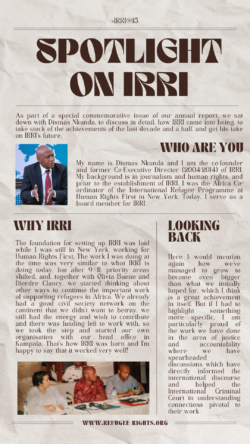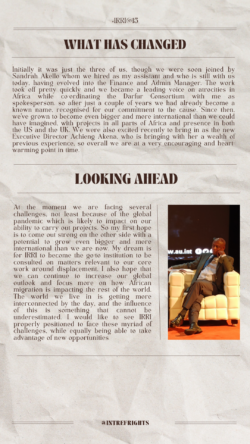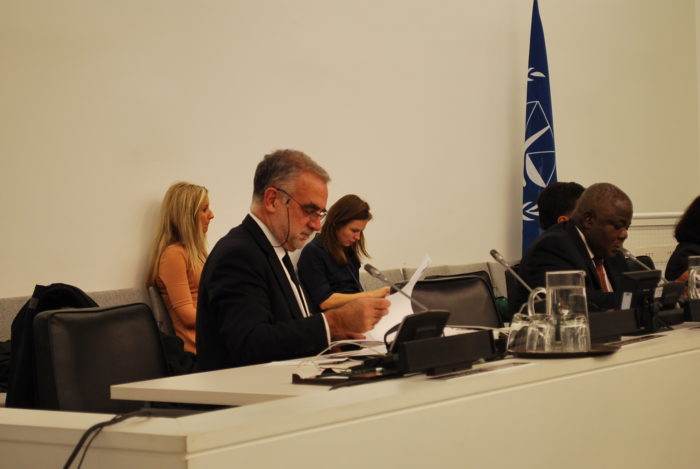The Democratic Republic of Congo (DRC) is still without an electoral calendar, despite the fact that presidential elections are supposed to be held this year. As a result, the political climate is tense, compounded by the uncertainty of who will stand given that the Congolese constitution forbids President Kabila, in power since 2001, from competing….
Since the outbreak of civil war in December 2013, more than 600,000 South Sudanese have fled to neighbouring countries. More than 226,000 of them have made their way to Ethiopia, contributing to the country overtaking Kenya as the country hosting the most refugees in Africa. The western region of Gambella hosts more than 270,000 of…
Despite all the time, energy, and rhetoric invested in trying to figure out how to protect civilians from atrocities, the vast majority of civilians in armed conflict are exposed and unprotected. This is very much the case in South Sudan, where, despite the presence of a peacekeeping mission, thousands of civilians have been targeted over…
The African Union and UN appear to have found a new sense of urgency, but Burundi’s current crisis will only be resolved if it is seen as part of a longer legacy. Olivier* was studying at the University of Burundi in April 2015 when unrest began to escalate in the country following President Pierre Nkurunziza’s…
Last week the Be’er-Sheva District Court rejected a petition filed by two Eritrean asylum seekers and six Israeli NGOs against the government’s new policy of imprisoning irregular migrants who are unwilling to leave Israel to Uganda or Rwanda. By doing so, the court gave a green light to the indefinite imprisonment of Eritreans and Sudanese…
Although Zambia has a long tradition of hosting refugees and has been recognised as a generous and hospitable host, current legislation and policies impede the rights of refugees to freedom of movement, which, as IRRI has previously argued, is a “critically important refugee right.” A policy of refugee encampment, which isolates refugees in camps and…
On 17 October 2015, Alpha Condé, the incumbent president of the Republic of Guinea was declared the winner of Guinea’s presidential elections. With 58% of the vote, Condé was able to avoid a second round. The opposition, led by Cellou Dalein Diallo however, described the election as a “masquerade” and refused to recognise the results….
Imagine you are born in a country, to parents who were also born in that country, and all your life you believed you were a citizen of that country – with all the rights that go along with it. Then, one day when you apply for a standard identification document, you are told you are…
On 22 July 2015, to mark the 21st anniversary of his accession to power, President Jammeh announced that he would release approximately 200 detainees in the country. Among those released were all of those who had been convicted of treason between 1994 and 2013 received a presidential pardon. Although the pardon was welcomed by Gambians,…
For decades, Europe has managed to ignore the majority of refugees housed in countries along the borders of those in crisis – including Turkey, Lebanon and Africa’s Great Lakes region – and has had its collective head in the sand over the critical failures to offer them adequate protection and assistance. It has wrongly assumed that aid budgets are a…
Published in the EACSOF Newsletter The Secretary General of the East African Community (EAC), Dr. Richard Sezibera, is reported to have said recently that the issuance of East African passports will kick off in November 2015. This is aimed at facilitating trade and movement of persons in the region. “Physical borders are being removed for…
The following blog was originally posted on the International Justice Monitor website. (2 September 2015) Today, September 2, the trial of Bosco Ntaganda began at the International Criminal Court (ICC) in The Hague. This will be an important trial for the court in many ways and will be followed with particular interest both in the…
The following blog was originally posted on the International Justice Monitor website. (2 September 2015) Today, September 2, the trial of Bosco Ntaganda began at the International Criminal Court (ICC) in The Hague. This will be an important trial for the court in many ways and will be followed with particular interest both in the…
Five years after the death of Congolese human rights activist, Floribert Chebeya and the disappearance of his colleague Fidèle Bazana shook the Congolese human rights community, the fight for justice continues. Although eight people have been found in connection with the case in the Democratic Republic of Congo (DRC), activists argue that the truth is…
The following blog was originally posted on the International Justice Monitor website. (24 August, 2015) On August 21, 2015, the International Criminal Court (ICC) heard arguments about whether or not to release Thomas Lubanga, the first person to be convicted by the court. As required under Article 110 of the Rome Statute, the ICC will…
On Sunday 9 August, the Ugandan government announced that Sudan’s President Omar Bashir would join Ugandan president, Yoweri Museveni, Kenya’s president, Uhuru Kenyatta and Ethiopian Prime Minister, Hailemariam Desalegn in Entebbe to discuss the political crisis in neighbouring South Sudan. The Ugandan government assured Bashir that they would not arrest him. As the government spokesperson…
Burundians recently headed to the polls in a strongly contested election that was boycotted by most of the opposition in protest of the president’s decision to seek a third term. While there has been much discussion of the legitimacy of the elections and possibilities for transition, mostly from those in Bujumbura or who have recently…
For years, people have wondered if Hissène Habré would ever be brought to justice. Therefore, the start of his trial in Dakar, Senegal on 20 July 2015 by the Extraordinary African Chambers marks an important turning point in the fight against impunity on the African continent. Hissène Habré has been indicted for crimes against humanity,…
In Burundi, the disconnect between the mechanisms of democracy and its application could not be more stark. The government seems to be taking the approach that as long as elections are formally held then its legitimacy to hold onto the reins of power will be affirmed. Multiple opposition groups, not surprisingly, strongly dispute this approach…
These are reflections from a Burundian activist. His name has been withheld for his own security. Burundians have just finished the elections of local council members and parliamentarians. These elections happened in a context of political crisis triggered by the decision of President Nkurunziza to run for a third term. The opposition argued that Nkurunziza…


